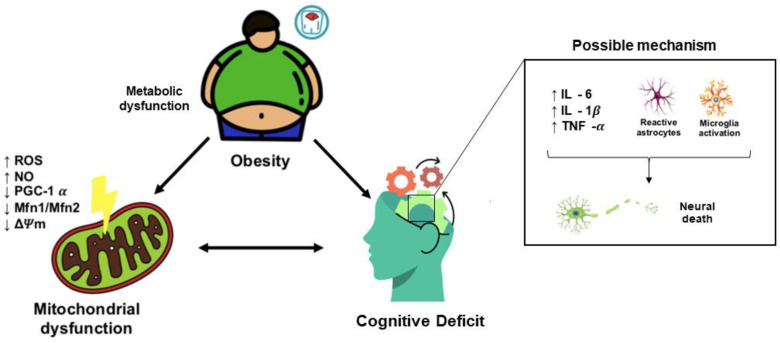Figure 2.
Obesity, neuroinflammation, and mitochondrial dysfunction. Excessive food consumption in obesity can lead to mitochondrial dysfunction characterized by increased reactive oxygen species (ROS) levels, increased nitric oxide (NO) levels, decreased protein content of PGC-1α and Mfn1/Mfn2, and decreased mitochondrial membrane potential (ΔΨm). Obesity is associated with increased levels of inflammatory cytokines in the brain and compromises neural viability.

